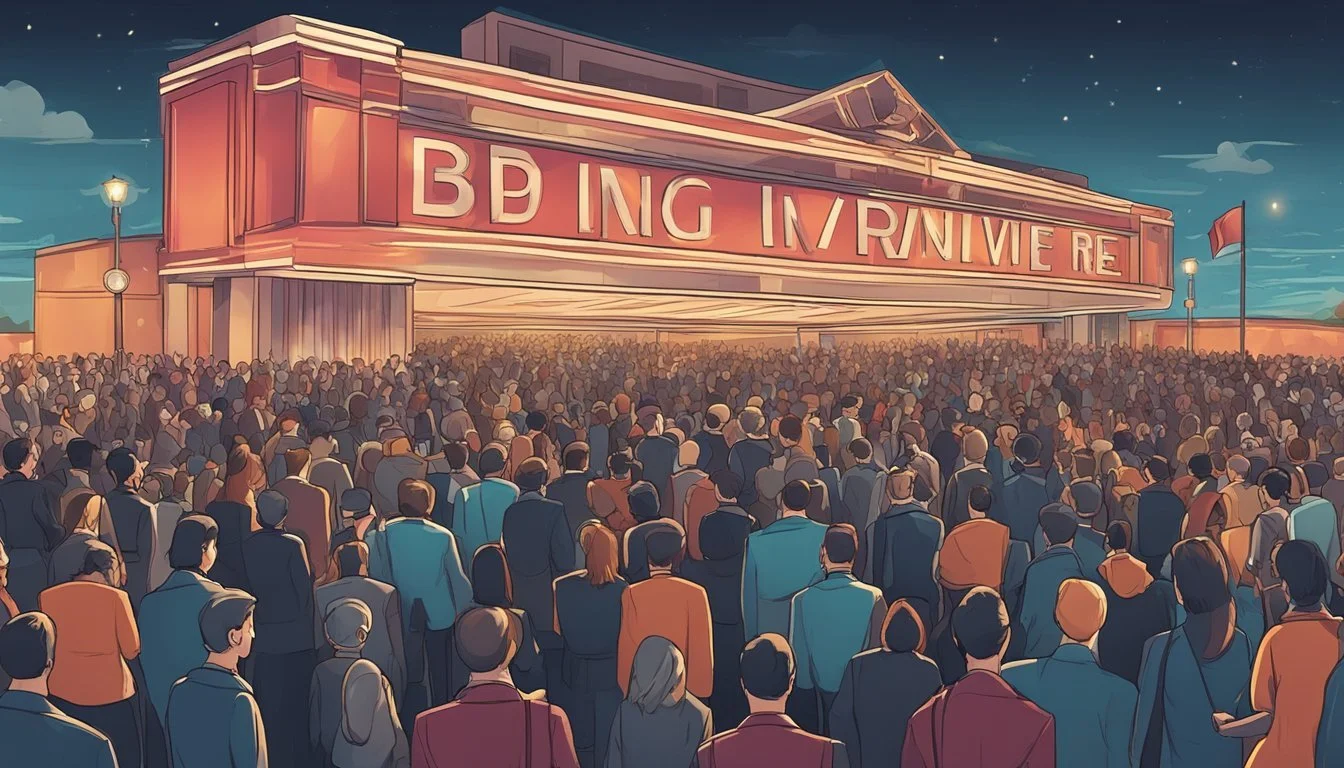Lance Armstrong Film Adaptations Explored
Cycling Legend's Life on Screen
Lance Armstrong's controversial cycling career has inspired several films, but "The Program" stands out as a gripping portrayal of his rise and fall. Directed by Stephen Frears and released in 2015, the movie stars Ben Foster as Armstrong and Chris O'Dowd as journalist David Walsh. "The Program" offers a compelling look at Armstrong's doping scandal, based on Walsh's book "Seven Deadly Sins."
The film chronicles Armstrong's journey from cancer survivor to seven-time Tour de France champion, while simultaneously following Walsh's relentless pursuit of the truth. It delves into the complex world of professional cycling and the lengths Armstrong went to maintain his facade of success. Foster's intense performance as Armstrong captures the athlete's determination and the moral compromises he made along the way.
"The Program" premiered at the 2015 Toronto International Film Festival and received praise for its unflinching examination of one of sports' biggest scandals. The movie provides viewers with a dramatized yet insightful account of the events that led to Armstrong's downfall, offering a glimpse into the world of competitive cycling and the power of investigative journalism.
Overview of 'The Program'
'The Program' is a biographical drama film directed by Stephen Frears that chronicles the controversial career of cyclist Lance Armstrong. It offers a compelling look at Armstrong's rise to fame and subsequent fall from grace due to doping allegations.
Plot Summary
The film follows Irish sports journalist David Walsh as he becomes suspicious of Lance Armstrong's Tour de France victories. Walsh suspects Armstrong's performances are fueled by banned substances and embarks on a quest to uncover the truth. The narrative tracks Armstrong's cycling career, from his battle with cancer to his unprecedented seven consecutive Tour de France wins. It delves into the sophisticated doping program Armstrong orchestrated to maintain his competitive edge. The story culminates with Armstrong's public downfall as evidence of his drug use comes to light.
Cast and Characters
Ben Foster portrays Lance Armstrong, capturing the cyclist's determination and complex personality. Chris O'Dowd plays David Walsh, the persistent journalist who pursues the truth behind Armstrong's success. Guillaume Canet takes on the role of Dr. Michele Ferrari, Armstrong's controversial Italian physician. Jesse Plemons appears as Floyd Landis, Armstrong's former teammate who eventually testifies against him. The cast delivers nuanced performances that bring depth to the real-life figures they portray.
Production Background
'The Program' is based on David Walsh's book "Seven Deadly Sins: My Pursuit of Lance Armstrong." Stephen Frears, known for his biographical films, directed the movie. The production team aimed for authenticity, with Ben Foster reportedly using performance-enhancing drugs to understand Armstrong's experience. The film premiered at the 2015 Toronto International Film Festival. It received attention for its exploration of a true story that shocked the sports world and captivated global media attention.
Biographical Elements
"The Program" portrays key aspects of Lance Armstrong's cycling career and Tour de France victories. It explores his rise to fame, doping scandal, and eventual downfall.
Lance Armstrong's Cycling Career
Lance Armstrong began competitive cycling as a teenager. He quickly rose through the ranks, becoming a professional at age 21. In 1996, Armstrong was diagnosed with testicular cancer. He fought the disease and made a remarkable comeback to cycling.
Armstrong joined the U.S. Postal Service team in 1998. His performance improved dramatically, raising suspicions among some observers. The film depicts Armstrong's intense training regimens and his relationships with teammates and coaches.
Tour de France
Armstrong's seven consecutive Tour de France wins from 1999 to 2005 are central to the movie's narrative. The film showcases his dominant performances in the grueling three-week race. It highlights key stages and rivalries during this period.
The movie also explores the mounting accusations of doping that surrounded Armstrong's victories. It portrays his vehement denials and attempts to discredit his accusers. The film culminates with Armstrong's confession and the stripping of his Tour titles in 2012.
Doping Controversy
Lance Armstrong's cycling career was marred by allegations of performance-enhancing drug use. The scandal rocked the sports world and led to extensive investigations, ultimately resulting in Armstrong's downfall.
Investigation of Lance Armstrong
The United States Anti-Doping Agency (USADA) launched a thorough investigation into Armstrong's alleged doping practices. David Walsh, an Irish sports journalist, played a crucial role in exposing the truth. He became convinced that Armstrong's Tour de France victories were fueled by banned substances.
Walsh's pursuit of evidence against Armstrong formed the basis for the film "The Program." The investigation uncovered a sophisticated doping program involving EPO, blood transfusions, and other performance-enhancing drugs.
Former teammates, including Floyd Landis, provided testimony against Armstrong. Dr. Michele Ferrari, a sports doctor, was also implicated in the doping scheme.
Representation of Doping in the Film
"The Program" portrays the complex web of deception surrounding Armstrong's doping practices. The film depicts the cyclist's use of EPO and other performance-enhancing drugs to gain a competitive edge.
It showcases the lengths Armstrong went to conceal his doping, including evading detection methods and intimidating potential whistleblowers. The movie highlights the role of key figures like Dr. Ferrari in facilitating the doping program.
The film also explores the psychological toll of maintaining the lie and the eventual unraveling of Armstrong's carefully constructed public image. It presents a stark contrast between Armstrong's public persona as a cancer survivor and his behind-the-scenes actions.
Critical Reception
"The Program" received mixed reactions from critics and audiences. Its portrayal of Lance Armstrong's doping scandal sparked debate about the film's accuracy and impact.
Box Office Performance
"The Program" had a modest box office performance. The film grossed approximately $3 million worldwide. Its limited release in select countries contributed to the modest financial returns.
France saw the movie's widest release, where it earned around $1.5 million. The UK and Ireland markets added another $800,000 to its total. Despite the film's topical subject matter, it failed to generate significant audience interest in most territories.
Reviews from Critics
Critics offered varied opinions on "The Program." Many praised Ben Foster's portrayal of Lance Armstrong, highlighting his intense performance. The film earned a 61% approval rating on Rotten Tomatoes.
Reviewers commended the movie's depiction of Armstrong's rise and fall. Some critics found the narrative compelling and well-paced. Others felt the film lacked depth in exploring Armstrong's motivations.
The BBC's Owen Gleiberman called it "one of the year's best films." He praised its portrayal of Armstrong's complex character. Some reviewers criticized the film for not delving deeper into the emotional impact of Armstrong's deception on those around him.
Cultural Impact
"The Program" sparked renewed public interest in Lance Armstrong's doping scandal. The film brought wider attention to the complexities of performance-enhancing drug use in professional cycling.
It influenced discussions about ethics in sports and the pressures athletes face to succeed at all costs. The movie's portrayal of Armstrong's rise and fall resonated with audiences worldwide.
Media coverage of "The Program" often focused on Ben Foster's intense preparation for the role. His decision to use performance-enhancing drugs to better understand Armstrong's experience generated significant controversy.
The film contributed to ongoing debates about hero worship in sports and the dangers of placing athletes on pedestals. It highlighted the impact of doping scandals on fans, teammates, and the integrity of competitive cycling.
"The Program" also shed light on the role of investigative journalism in exposing corruption in sports. It emphasized the persistence required to uncover deeply entrenched systems of deception.
The movie's release coincided with continued efforts to clean up professional cycling. It served as a cautionary tale about the long-term consequences of cheating and the importance of fair competition.
Comparative Analysis
"The Program" stands out among sports dramas for its unflinching depiction of Lance Armstrong's controversial cycling career. It balances dramatic storytelling with factual accuracy in portraying real events from the cycling world.
How 'The Program' Compares to Other Sports Dramas
"The Program" distinguishes itself from typical sports films by focusing on the darker side of athletic achievement. Unlike many uplifting tales of triumph, it delves into doping scandals and ethical breaches in professional cycling.
The film's gritty realism contrasts sharply with more inspirational sports narratives. It presents a complex portrait of Armstrong, exploring both his athletic prowess and moral failings.
Director Stephen Frears employs a documentary-like approach, giving the movie a sense of authenticity often lacking in dramatized sports stories. This style helps create a more nuanced and thought-provoking viewing experience.
Accuracy in Depicting Real Events
"The Program" strives for historical accuracy in its portrayal of Armstrong's career and the cycling world. The film meticulously recreates key moments from Armstrong's rise to fame and subsequent fall from grace.
Extensive research and consultation with cycling experts lend credibility to the movie's depiction of doping practices and race strategies. The filmmakers took care to accurately represent the technical aspects of professional cycling.
While some dramatic liberties are taken for storytelling purposes, the core events and timeline closely follow the documented facts of Armstrong's story. This commitment to accuracy sets "The Program" apart as a valuable contribution to sports cinema.





